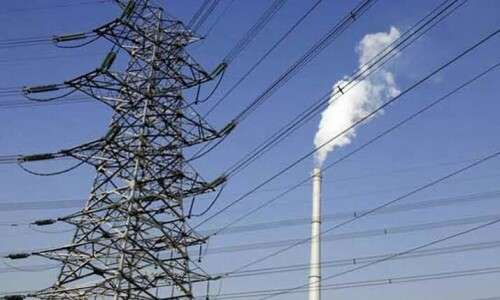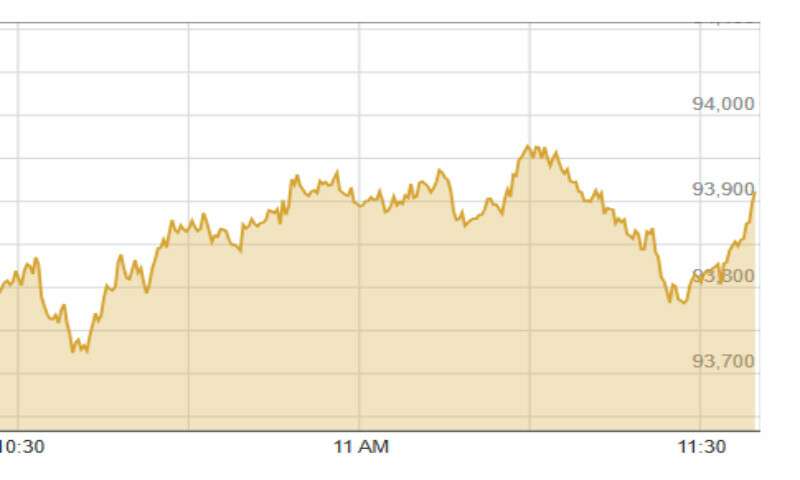The National Electric Power Regulatory Authority (Nepra) has delivered a rare and significant double dose of relief for electricity consumers in Pakistan. This includes a negative monthly fuel cost adjustment (FCA) of Rs1.14 per unit for December 2024 and a series of discounts on incremental power consumption over the winter months. These decisions come as part of the government’s ongoing efforts to ease the financial burden on consumers while promoting energy efficiency.
Nepra’s Key Decisions on Electricity Tariff Relief
1. Negative Fuel Cost Adjustment for December 2024
Nepra has confirmed a reduction of Rs1.14 per unit in the applicable tariff for power distribution companies (Discos) for electricity consumed in October 2024, which will be reflected in consumers’ December bills. This negative FCA is part of the government’s efforts to adjust for the fluctuating fuel costs and bring some relief to the overburdened consumer base. However, it’s worth noting that this reduction will be slightly lower than the negative FCA of Rs1.28 per unit applied in November.
What Does the Negative FCA Mean for Consumers?
The negative FCA is a mechanism through which the cost of power generation based on fuel consumption is adjusted. In this case, it means that consumers will pay less for the electricity consumed in October 2024, which will be reflected in their December electricity bills.
While the overall relief may appear smaller than the previous month, it is still a positive step in the right direction for the country’s power consumers, especially given the rise in energy prices in recent years.
2. Winter Relief Package for Incremental Consumption
Nepra has also approved a winter relief package that will offer significant discounts for consumers who increase their electricity consumption by 25% during the winter months. This relief extends to all consumers, including those served by K-Electric, solar net-metered consumers, and large industrial users.
The relief package includes a discount of Rs6-23 per unit on incremental consumption for the three winter months. The package aims to encourage efficient use of energy during the colder months while providing consumers with a financial incentive for additional consumption.
Details of the Winter Relief Package
The government introduced the winter relief package as a way to encourage consumers to increase their electricity usage without facing steep charges. The scheme is designed to offer a discount of up to 50% on the incremental consumption, depending on the consumer’s category.
This means that if you increase your power consumption by 25%, the additional units consumed will be charged at a reduced rate. This rate is calculated based on your past three years of consumption history.
3. Application of the Winter Relief to K-Electric and Other Consumers
K-Electric, which operates in Karachi, will also be part of this winter relief initiative, with guarantees that the relief will reach consumers without delays. The power company has committed to ensuring that the benefits of the winter relief package are passed on to its customers, covering any losses incurred due to the discount by the government.
The initiative applies to all consumers under Discos, as well as large wheeling industrial consumers, commercial users, and residential customers.
4. Extending Relief to Solar Net-Metered Consumers
For the first time, solar net-metered consumers will benefit from the relief package. Solar consumers will see discounts on incremental power consumption, a move that encourages the integration of renewable energy systems into the national grid.
Understanding the New FCA and Relief Package
How the FCA Works
The FCA is essentially an adjustment made to the electricity tariff to account for changes in the cost of generating electricity, primarily based on the price of fuels such as natural gas, oil, and coal. The negative FCA indicates that the cost of fuel was lower than expected during the previous month, and this cost-saving is passed on to consumers.
Winter Relief on Incremental Consumption
The relief on incremental consumption is based on the idea of encouraging more efficient use of electricity during the winter months when energy demand tends to spike. Consumers who increase their electricity consumption by 25% compared to their average usage in previous years will be charged at discounted rates for the additional units consumed.
How Does Incremental Consumption Work?
The incremental consumption is calculated using historical data, specifically the electricity consumed over the last three years. The discount is applied to the additional power used over and above the consumer’s previous average consumption, providing a strong incentive for consumers to use more electricity without a significant increase in costs.
Impact on Various Consumer Categories
Domestic Consumers
For domestic consumers, the base rate for electricity consumption ranges from Rs37.49 to Rs52.07 per unit, depending on the consumer’s usage category. Under the winter relief package, the additional consumption will be charged at Rs26.07 per unit, which is substantially lower than the base rate.
Discount on Domestic Consumption
The discount for domestic users can be as much as 50%, depending on the category of consumer and the additional units consumed. This initiative will help ease the burden on residential users during the colder months, offering savings on their power bills.
Commercial Consumers
Commercial consumers, whose base rates range between Rs39.53 and Rs48.78 per unit, will also benefit from the winter relief package. The additional consumption will be billed at the same rate of Rs26.07 per unit, providing a discount of 34% to 47% on incremental usage.
Industrial Consumers
Industrial consumers, who are typically large-scale users of electricity, will be charged a reduced rate of Rs26 per unit on any incremental consumption. This could lead to savings of 18% to 37% compared to the base rates, making it an attractive option for industries looking to cut down on their energy expenses.
Challenges and Criticism of the FCA Adjustment
Criticism from Nepra Member
Despite the relief provided to consumers, Nepra’s decision to approve the FCA adjustment was met with some criticism from its tariff member, Mathar Niaz Rana. He raised concerns over payments made to sugar mills for controversial past adjustments, suggesting that this payment had resulted in a lower relief for consumers.
Rana’s dissenting opinion pointed out that consumers could have benefited from an additional Rs1.32 per unit negative FCA if the payment to sugar mills had been deferred.
FAQs About Nepra’s Double Relief for Power Consumers
1. What is the Negative Fuel Cost Adjustment (FCA)?
The Negative FCA is a reduction in the electricity tariff based on the actual cost of fuel used for power generation. A negative FCA indicates that the fuel cost was lower than expected, and the savings are passed on to consumers.
2. Who is eligible for the Winter Relief Package?
All consumers of power distribution companies (Discos), K-Electric customers, large industrial users, and solar net-metered consumers are eligible for the winter relief package.
3. How much will consumers save on incremental electricity consumption?
Consumers can save up to 50% on incremental electricity consumption, depending on the category of consumer and the amount of additional power used.
4. How is the incremental consumption calculated?
Incremental consumption is calculated based on a consumer’s electricity usage over the last three years. The government uses this data to determine how much extra electricity a consumer has used compared to previous years, and the discount is applied to that extra usage.
5. How will this relief affect the electricity bills of consumers?
Consumers who use more electricity than in previous years will see a significant reduction in the rate charged for their additional usage, resulting in lower electricity bills for the three winter months.
Conclusion: A Much-Needed Relief for Power Consumers
Nepra’s double relief package comes as a timely intervention for power consumers in Pakistan, especially during the challenging winter months. The negative FCA adjustment, along with the winter relief package for incremental consumption, offers consumers a much-needed financial reprieve. Whether you are a domestic user, a commercial business, or an industrial consumer, these changes are designed to ease the burden of rising electricity costs and encourage energy-efficient usage.
MUST READ:
https://flarenews.pk/2024/12/07/pia-to-resume-europe-flights-from-january-10/



